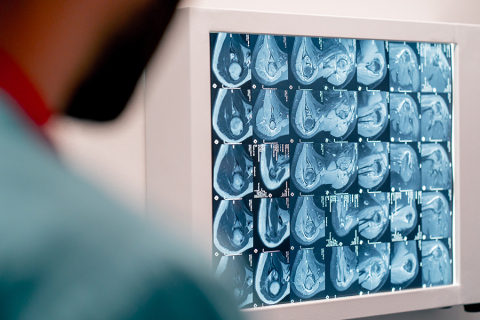Accurate prediction of cancer therapy effectiveness as one of the greatest challenges in oncology
Current prognostic methods are often insufficient. Patients need more precise information on their outlook, and physicians need more effective tools to support therapeutic decision-making. Preliminary findings from researchers involved in the project show that artificial intelligence algorithms based on computed tomography data make it possible to predict patient survival effectively without requiring physicians to analyze additional datasets. This represents a major breakthrough, as existing prognostic standards involve the participation of multiple specialists, numerous laboratory tests, and complex clinical analyses. There is, however, a need to further develop the models already created by the researchers, including the use of magnetic resonance imaging, which is the current gold standard in the diagnosis of many oncological diseases.
Research plans within the AI project for predicting abdominal cancer treatment outcomes
As part of the NCN-funded project titled “Artificial intelligence in predicting treatment outcomes for abdominal cancers: implementing machine learning and deep learning methods for the comprehensive analysis of medical imaging”, the researchers plan to:
- Develop and test AI models based on computed tomography imaging and expand the existing dataset;
- Create a unique, world-class magnetic resonance imaging dataset for patients with liver cancer that will enable the development of new prognostic models.
- Test the developed methods in other cancers, such as colorectal cancer, which is one of the leading causes of cancer-related mortality.
The project has been prepared in collaboration with Professor Przemysław Biecek of the Warsaw University of Technology and is based on interdisciplinary cooperation. Our University contributes clinical expertise and access to imaging data, while the Warsaw University of Technology provides expertise in AI tools (machine learning and deep learning) and computational infrastructure.
About the SONATINA 9 competition
In the ninth edition of the SONATINA competition, the NCN received 249 applications. The total value of the awarded grants exceeded PLN 44.7 million. Among the laureates are 15 representatives of the humanities, social sciences, and arts, 22 from the exact and technical sciences, and 13 from the life sciences. Applications were evaluated in superpanels, composed of expert teams appointed for these three areas of science. The evaluation procedure in SONATINA is two-stage, with project leaders invited for an interview at NCN headquarters in the second stage.
